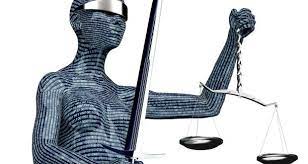Lima G, Cha M, Jeon C and Park KS
(2021) Front. Robot. AI 8:756242.
doi: 10.3389/frobt.2021.756242
Abstract
Regulating artificial intelligence (AI) has become necessary in light of its deployment in high-risk scenarios. This paper explores the proposal to extend legal personhood to AI and robots, which had not yet been examined through the lens of the general public. We present two studies (N = 3,559) to obtain people’s views of electronic legal personhood vis-à-vis existing liability models. Our study reveals people’s desire to punish automated agents even though these entities are not recognized any mental state. Furthermore, people did not believe automated agents’ punishment would fulfill deterrence nor retribution and were unwilling to grant them legal punishment preconditions, namely physical independence and assets. Collectively, these findings suggest a conflict between the desire to punish automated agents and its perceived impracticability. We conclude by discussing how future design and legal decisions may influence how the public reacts to automated agents’ wrongdoings.
From Concluding Remarks
By no means this research proposes that robots and AI should be the sole entities to hold liability for their actions. In contrast, responsibility, awareness, and punishment were assigned to all associates. We thus posit that distributing liability among all entities involved in deploying these systems would follow the public perception of the issue. Such a model could take joint and several liability models as a starting point by enforcing the proposal that various entities should be held jointly liable for damages.
Our work also raises the question of whether people wish to punish AI and robots for reasons other than retribution, deterrence, and reform. For instance, the public may punish electronic agents for general or indirect deterrence (Twardawski et al., 2020). Punishing an AI could educate humans that a specific action is wrong without the negative consequences of human punishment. Recent literature in moral psychology also proposes that humans might strive for a morally coherent world, where seemingly contradictory judgments arise so that the public perception of agents’ moral qualities match the moral qualities of their actions’ outcomes (Clark et al., 2015). We highlight that legal punishment is not only directed at the wrongdoer but also fulfills other functions in society that future work should inquire about when dealing with automated agents. Finally, our work poses the question of whether proactive actions towards holding existing legal persons liable for harms caused by automated agents would compensate for people’s desire to punish them. For instance, future work might examine whether punishing a system’s manufacturer may decrease the extent to which people punish AI and robots. Even if the responsibility gap can be easily solved, conflicts between the public and legal institutions might continue to pose challenges to the successful governance of these new technologies.
We selected scenarios from active areas of AI and robotics (i.e., medicine and war; see SI). People’s moral judgments might change depending on the scenario or background. The proposed scenarios did not introduce, for the sake of feasibility and brevity, much of the background usually considered when judging someone’s actions legally. We did not control for any previous attitudes towards AI and robots or knowledge of related areas, such as law and computer science, which could result in different judgments among the participants.
